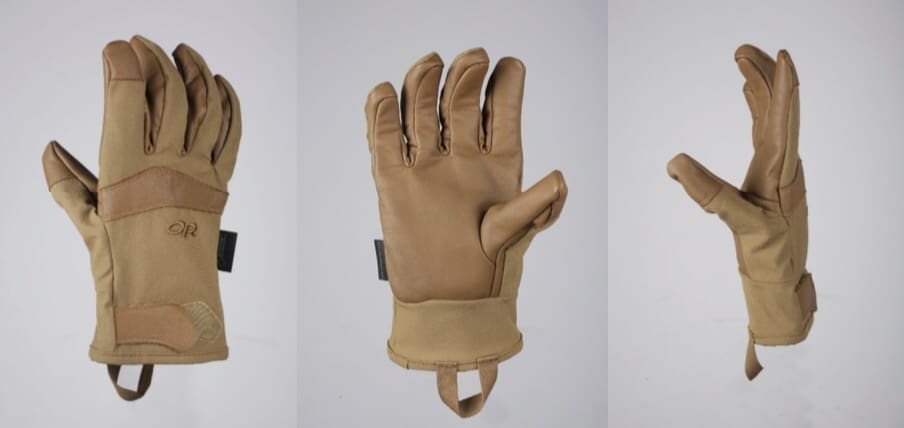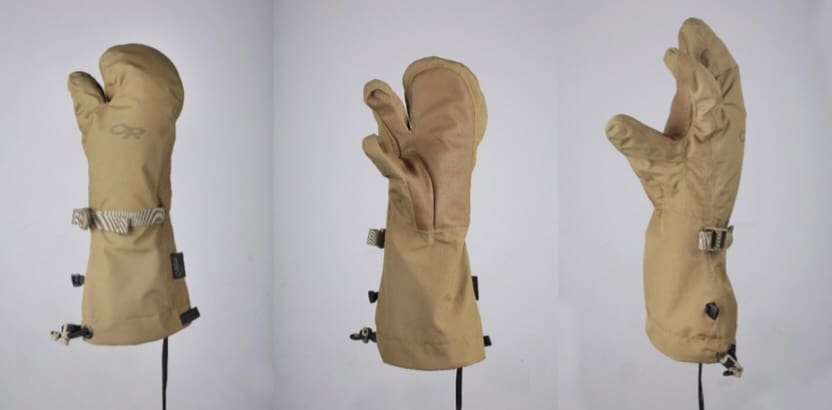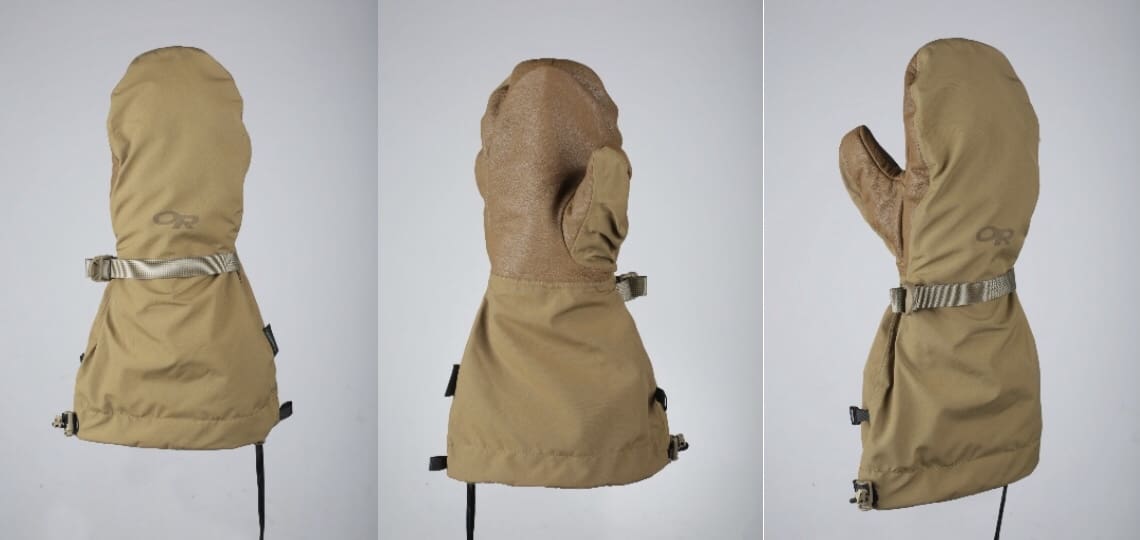Earlier today, Product Manager for Soldier Clothing and Individual Equipment (PdM-SCIE), issued a pre-solicitation to Industry, announcing their intent to procure, on a full and open basis, a new modular and scalable hand wear protection system for extreme cold weather operating environments. Expect the actual Request for Proposal (RFP) for an Indefinite Delivery / Indefinite Quantity Contract to be released on or about 1 July 2019, with proposals due 30 days after RFP release. The proposal solicitation number is W911QY-19-R-0026.
For the past few years, the US Army has issued an interim Army Glove System, manufactured by Outdoor Research and based on protective handwear used by Special Operations Forces. This new Cold Weather Glove System will replace it along with other legacy cold weather handwear.



The new CWGS must meet the following requirements:
1) Environmental Protection in the temperature ranges of 40oF to -40oF Threshold (T), 40oF to -60oF or below Objective (O).
2) The CWGS shall provide flame resistance and not melt or drip when exposed to heat or flame at the next to skin level (O).
3) Hand Dexterity to allow the Soldier to write clearly, easily adjust or use radios and other equipment (optics) with small knobs or levers in temperatures 40oF to 14oF (T), 40oF to -20oF (O). Gloves must not restrict the ability to place the trigger finger cleanly inside the trigger guard at 40oF to -20oF (T), 40oF to -60oF or below (O) of individual issued or crew served weapon systems.
4) Capacitive Touch that is compatible with capacitive touchscreens or resistive screens in temperatures 40oF to 14oF (T), 40oF to -40oF (O).
5) Made of materials that contain no health hazards or Toxic Industrial Chemicals/Toxic Industrial Materials (TICs/TIMs) Threshold=Objective (T=O).
6) Don & Doff of any component of the CWGS in less than 8 seconds.
7) A camouflage pattern or solid color “over-white” capability to potentially replace the current Army over-white mitten shells (NSN 8415-01-481-3434).
8) Back of the hand comfort fabric that is a flexible pile-like fabric, which remains soft in cold conditions and shall not generate electrical static charge when rubbed. The comfort fabric will not freeze with ice and readily shed frost when shaken, and will not ignite, melt or drip in proximity to open flame. The comfort fabric shall contribute to the insulation of the cold weather glove system to protect against cold conditions and be dimensionally stable to laundering.
9) System durability for a minimum of 270 (T), 365 (O) days of operational use, in the systems intended environments/conditions without weakening of inner and outer components or separation of any parts of the CWGS.
10) Suspension & adjustability feature at the wrist that is capable of being adjusted using the free hand wearing the other glove and the capability to secure the hand wear within close proximity to the hands after removal (T=O).
11) Constructed of quick-drying materials to allow for drying time within 4 hours (T), 1 hour (O) under standard lab conditions in a heated environment.
12) Provide a slip-free grip palm and fingers, while affording sensitivity during delicate tasks in the temperature range 40oF to 14oF (T), secure grip for tools and weapons during extreme weather conditions in the temperature range 14oF to -20oF (O).
13) Compatible with all equipment and items issued to the Soldier as individual equipment or PPE (T=O).
14) Accommodate unisex hand sizes XX-Small, X-Small, Small, Medium, Large, X-Large and XX-Large.
15) Resistance to water, wind, petroleum, oils, lubricants, and detergents at a level equal to existing cold weather gloves.
16) Moisture Vapor Transmission Rate (MVTR) rate of greater than 7.0 grams/hour (T), greater than 10.0 grams/hour (O).
Based on drafts of these requirements, industry has developed quite a few new handwear concepts. Regardless of what the Army procured, we will all benefit from the development that has gone into this effort through new product offerings.


Glad to see this project is still moving forward. Long overdue upgrades from the 1950’s designed they are replacing. Boot upgrades are next.
Black leather shells and wool liners? Still? I remember initial issue in ‘01 and thinking “wow, exactly the ones in my dads foot locker, from 1968…”
The images in the article are what the Army is currently issuing as an augmentation to the Arctic Mittens and Trigher Finger Mittens, both of which still have a place in the inventory due to there primary component of wool and woobie lining material. This is a good move, but will more than likely double the number of gloves the cold weather based units currently get issued (somewhere between 10-12 last I checked).
Why is it beige? Winter usually means white snow…
The colour palette was chosen as it works in all environments. Tan/light brown actually works really well in winter. In fact over whites that are dirty work better then clean over whites.
Mickey Mouse Boots